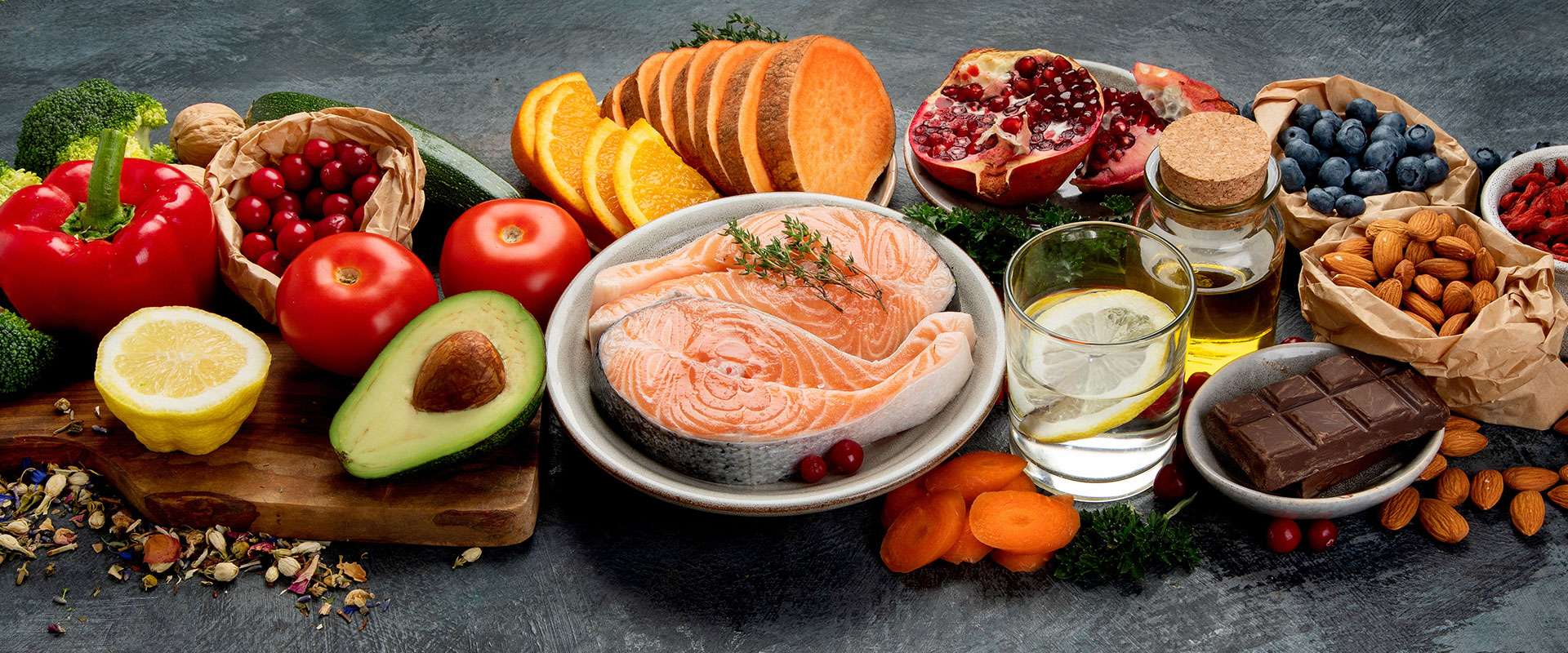Eye and Skin Health
Vitamins A, C, and E are critical for maintaining healthy skin and vision. Vitamin A is vital for skin regeneration and eye health, Vitamin C supports skin elasticity and Vitamin E protects skin from oxidative stress.
Vitamin A is a fat-soluble* vitamin. One of its most important roles is to maintain and preserve your vision. The body uses vitamin A to produce pigments for the retinas and moisture for the corneas. Vitamin A is also known to assist your immune system by supporting white blood cells, intestines, mucus membranes in the lungs and the urine tract. This helps in reducing inflammation and disease.
Energy Production and Metabolism
Vitamins B is a water-soluble* vitamin. Vitamin B-complex (B1, B2, B3, B5, B6, B7, B9, and B12) are integral in converting food into energy. They assist in metabolizing fats and proteins, create new blood cells, maintain healthy skin cells, ensuring that our bodies efficiently use the fuel we consume. Most people can get enough of these vitamins by eating a variety of nutrient-rich foods.
Immune System Support and Bone Health
Vitamin C is water-soluble* vitamin known for its antioxidant properties and its ability to fight off infections. It also helps defend the body against cell damage and is important in healing wounds, developing tissues and keeping your immune system strong. It’s also known for assisting in good eye and skin health.
Vitamin D is a fat-soluble* vitamin and is produced by the body when directly exposed to sunlight. Eating certain foods and supplements can assist in getting the adequate amount of the vitamin in the blood. Functions of this vitamin include, regulating the absorption of calcium, facilitation of the immune system, growth and development of bones, teeth and improved resistance to certain diseases.
Vitamin E is a fat-soluble* vitamin and is a powerful antioxidant. It aids in fighting off free radicals that lead to aging and disease. Also known to provide protection form heart disease, eye disorders, cancer and cognitive decline.
Vitamin K is a fat-soluble* vitamin and is key in building healthy bones. One of its most important jobs is in producing proteins needed in blood clotting so injuries can heal. Also known for its contributions in improved protection of cognitive function and overall brain health. By eating a healthy diet, most people can meet their needs of vitamin K.
Sign Up for Our Newsletter
Join our mailing list to receive first notice on FREE content, Perks and upcoming events.
Meditate: Meditation reduces stress, improves concentration, and can enhance self-awareness, helping in mental well-being.
Sources of Vitamins
Incorporating a variety of vitamins into your diet isn’t as challenging as it might seem. Here are some common sources:
- Vitamin A: Sweet potatoes, eggs and orange or green vegetables like carrots and spinach.
- Vitamin B: Present in whole grains, meats, legumes, seeds and nuts.
- Vitamin C: Abundant in fruits like oranges, strawberries, and vegetables like bell peppers and broccoli.
- Vitamin D: Sourced from sunlight, fatty fish, 2% vitamin D milk, white mushrooms.
- Vitamin E: Found in nuts, seeds and green leafy vegetables like spinach.
- Vitamin K: Available in green leafy vegetables, kale, spinach, collard greens, soy beans/oil.
Balancing Vitamins in Your Diet
While it’s essential to include vitamins in your diet, balance is key. Overconsumption of certain vitamins, especially fat-soluble ones like Vitamins A, D, E and K, can lead to toxicity. Therefore, it’s crucial to follow recommended daily allowances and consult with healthcare providers, especially when considering supplements.
Vitamin Supplements: A Helpful Addition or Not?
Supplements can play a role in filling nutritional gaps, especially for individuals with dietary restrictions or certain health conditions. However, they should not replace a balanced diet. Natural food sources offer a complex nutritional matrix that is often more beneficial than isolated vitamins in supplement form.
Vitamins are indispensable to our health, supporting everything from energy production to immune function. A diet rich in a variety of vitamins, primarily from natural food sources is key to maintaining health and preventing deficiencies. While supplements can be beneficial, they are best used under the guidance of a healthcare professional and as a complement to, not a replacement for, a nutritious diet.
Incorporating a diverse range of foods into your diet is the best way to ensure you get an adequate supply of these vital nutrients. So, next time you’re planning your meals, remember the power of vitamins and the essential role they play in keeping you healthy and thriving.
- Fat-Soluble Vitamins: A, D, E and K are absorbed with the other fats from the foods you eat. They are stored in your body’s fat tissue and liver. Because they are stored in fats and tissue, they remain in your body for a while. They can be stored for up to 6 months.
- Water-Soluble Vitamins: B and C are not stored in your body so they do not last as long as Fat-Soluble vitamins. They enter your bloodstream and anything your body doesn’t need at that time is eliminated through your urine.

